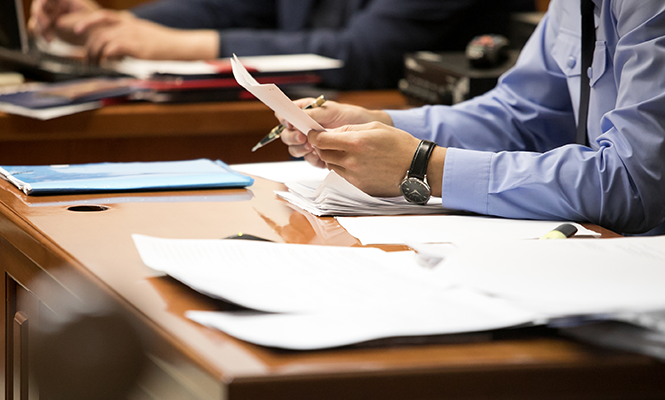Medical malpractice litigation is a fact of life in neurosurgery, for which no structured training is traditionally provided. While informational references are available, most residents have little interest in “wasting” time on learning the arcane rules of litigation and testimony when their careers can be better advanced by learning the neurosurgical craft. Nevertheless, expert witnesses are needed when the reality of social accountability for public performance in a licensed profession inevitably rears its ugly head, and expert witnesses are needed.
In the United States, tort law governs negligent injury claims using adversarial proceedings, which means civil litigation based on fault and negligence. Each side seeks justice through the legal system. Justice must be nonpartisan to be fair. The law should favor neither side in a dispute – it is simply the standard against which acts, committed or omitted, are judged. But the law must be interpreted in the light of particular facts, and some facts in a medical liability dispute require explanation by one with specialized education, training and experience to be correctly understood by the participants in the legal process, particularly the jury. For this reason, each party to the dispute selects an expert to explain the meaning of medical details in the case, and to render an opinion whether the standard of care was met, and if not, whether negligence caused injury and compensable damages.
The plaintiff and defendant parties to the lawsuit are biased; that’s the inherent design of an adversarial system. Impartial agents in a tort proceeding are expected to be neutral, that is, favoring neither side, in order to allow a just judgment to be rendered. Impartial participants include the judge, the jury and expert witnesses. However, adversarial proceedings tend toward exaggeration, to favor the claim of one party over another in a dispute, and the expert witness may tend to feel an obligation to help the side paying for the expert’s services to win – which is impermissible partiality, a tendency an expert witness should recognize and avoid like the plague.
Expert witness testimony is both factual and opinion. It is opinion that generally causes problems, tending to draw the expert into partiality toward one side in the dispute, by expressing favorable opinions on the two key elements in the case: standard of care violation and causation of injury. It is vitally important for any neurosurgeon serving as an expert witness to recognize this temptation and resist it.
The AANS adopted Rules for Neurosurgical Medical/Legal Expert Opinion Services in 2003 to give clear guidance to AANS members serving as expert witnesses.1 The Rules are divided into three general sections: impartiality, knowledge and compensation. Impartiality is the criterion on which neurosurgeons stumble most often, typically by offering opinions that are personal beliefs, rather than reflecting the consensus of the broad specialty.
Several considerations help clarify the Rules pertaining to impartiality.
- An expert witness should be able to give the same testimony, whether engaged by the plaintiff or defense, and should not advocate for either side.
- Do not engage in retrospective bias: view events from the perspective of those who experienced them, who could not foretell the future.
- Avoid filling in blanks in the record with supposition or circumstantial evidence, to make the story fit a biased belief.
- Consider different viewpoints, how other neurosurgeons might reasonably make different choices in management of problems. Remember, there is more than one way to skin a cat.
- Look beyond personal training and experience and consider that a technique or method chosen by a minority of neurosurgeons may have validity equal to that chosen by a majority.
- The standard of care is not necessarily a single way of doing things; consider a broad range of case management options.
- A complication or poor outcome does not necessarily imply negligence; these occur commonly without negligence and happen to the best of neurosurgeons.
As for subject matter knowledge, an expert is safest when testifying about topics within one’s personal and current experience. An expert should be in active practice to ensure optimal awareness of the state of the art in a rapidly evolving field. An expert must personally review all pertinent medical records, not simply case summaries prepared by others, and review all imaging studies, rather than relying on written reports. And an expert should be familiar with valid evidence in peer-reviewed publications that support opinions rendered.
Expert witness service is a privilege and a public service and should be approached as such. Both parties to a neurosurgical medical malpractice claim deserve competent, impartial, honest medicolegal assistance, in the same way a patient deserves competent and altruistic medical care. The neurosurgeon’s professional obligation is the same in both roles.








